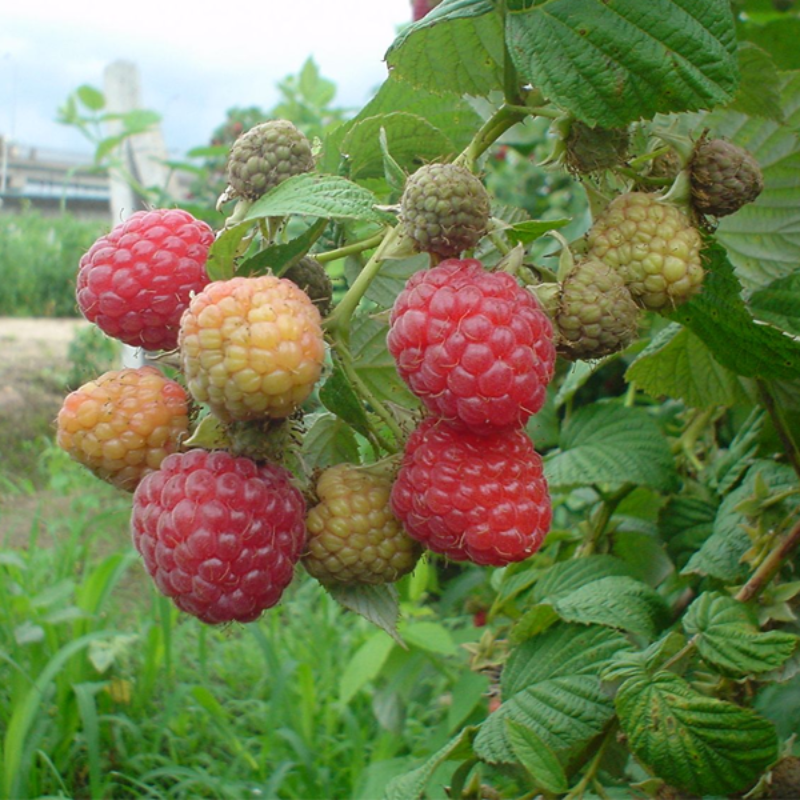- Species and varieties: Raspberries belong to the genus Rubus in the rose family (Rosaceae). There are several species and varieties of raspberries, including Rubus idaeus (red raspberry), Rubus occidentalis (black raspberry), and Rubus leucodermis (white or yellow raspberry). Popular varieties include 'Heritage', 'Autumn Bliss', 'Caroline', and 'Fall Gold'.
- Hybrid or heirloom: Raspberry seeds can be both hybrid and heirloom. Hybrid varieties are often bred for disease resistance, higher yield, and specific growing conditions. Heirloom varieties are traditional cultivars that have been passed down through generations and are valued for their unique flavors and characteristics.
- Pruning and training: Raspberries require regular pruning to maintain plant health and productivity. Summer-bearing varieties should be pruned after harvest, removing the canes that have fruited. Everbearing varieties should be pruned in late winter or early spring. Training the canes on a trellis or support system can help manage growth and improve air circulation.
- Fertilization needs: Raspberries benefit from a balanced fertilizer applied in early spring. A 10-10-10 (N-P-K) fertilizer is commonly used. Organic options like compost or well-rotted manure can also be beneficial. Avoid over-fertilizing, as this can lead to excessive vegetative growth at the expense of fruit production.
- Hardiness zones: Raspberries are suitable for USDA hardiness zones 3-9. They can tolerate a wide range of climates but perform best in regions with cool summers and mild winters.
- Climate requirements: Raspberries require a temperate climate with well-drained soil. They thrive in full sun but can tolerate partial shade. The ideal temperature range for growing raspberries is between 60-70°F (15-21°C). They need consistent moisture, especially during fruiting, but should not be waterlogged.




